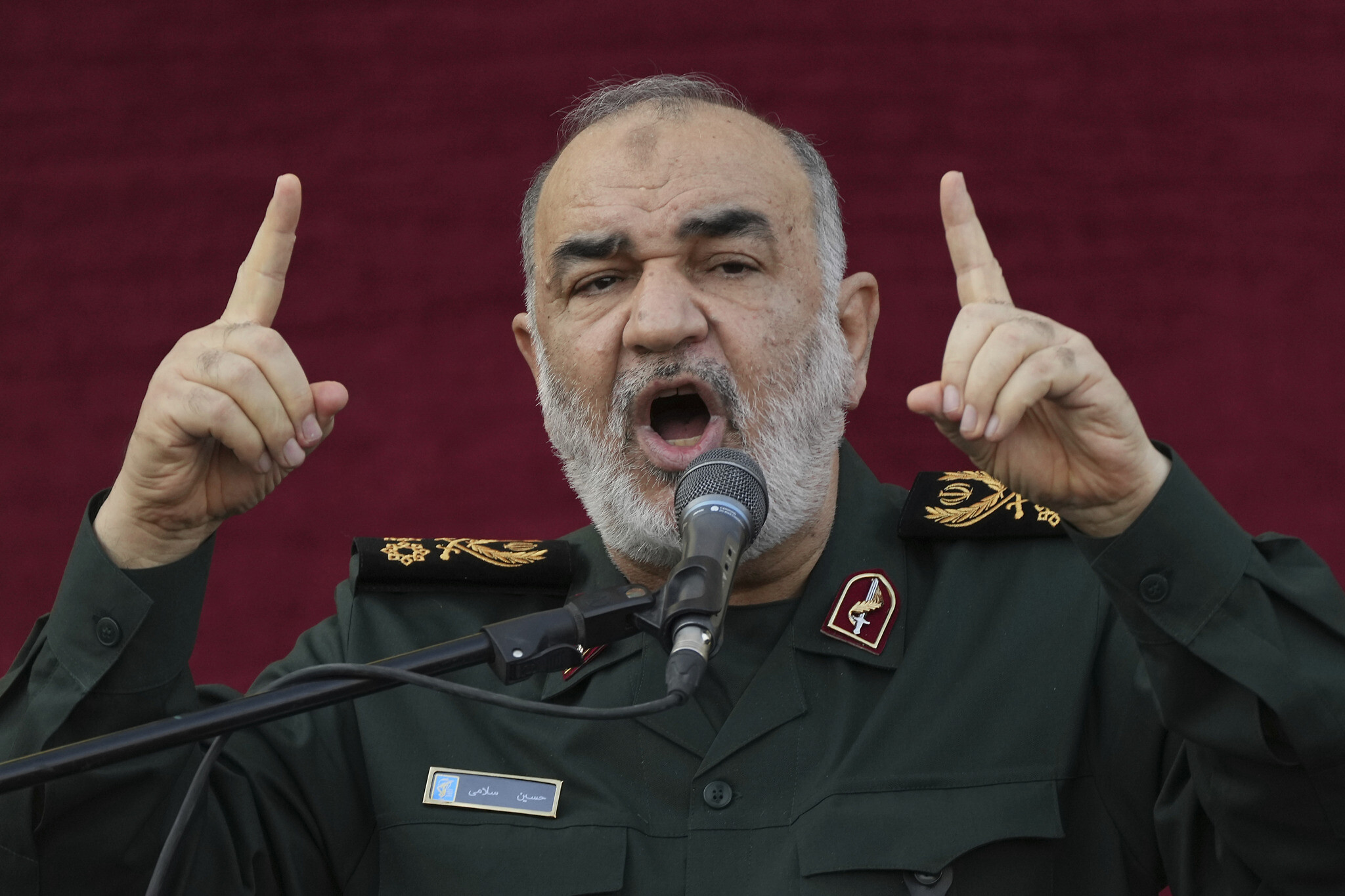Iranian Military Chief Warns Israel of Bitter Consequences After Attack
The escalating tension between Iran and Israel took a critical turn following Israel’s airstrikes on Iranian military sites on October 26, 2024.

Iran Criticizes Israeli Air Raids
Hossein Salami, commander of Iran’s Revolutionary Guards, responded sharply, warning Israel of “bitter consequences” that he claimed would be beyond imagination. According to Iranian media outlet Tasnim, Salami asserted that Israel’s attack had “failed to achieve its ominous goals,” portraying the airstrikes as both a “miscalculation and a sign of helplessness” as Israel navigates conflicts with Iran-backed militants in Gaza and Lebanon.
The Israeli strikes were in response to Tehran’s missile attack on October 1, itself a retaliation for the targeted killing of Iran-supported militant leaders and a Revolutionary Guards commander. Salami’s rhetoric has intensified the atmosphere in an already volatile region, as both countries brace for potential escalation.
Iran Promises a “Firm and Effective” Response
In addition to Salami’s statements, Iran’s Foreign Ministry issued a strong message, underscoring Tehran’s readiness to defend itself. Esmaeil Baghaei, spokesperson for the Foreign Ministry, stated on October 29 that Iran would “use all available means to respond firmly and effectively” to what he labeled as Israeli aggression. He emphasized that Tehran’s response would vary in severity, depending on Israel’s future actions. Despite the tough rhetoric, Iranian officials have taken a measured approach, downplaying the scale of Israel’s operation, which analysts interpret as a sign of Iran’s reluctance to escalate the conflict further at this stage.
Iran’s Supreme Leader Ayatollah Ali Khamenei also weighed in, advising against sensationalizing or trivializing Israel’s attacks, which killed four Iranian soldiers. He reiterated that the airstrikes marked a “miscalculation” by Israel, indicating that Tehran would exercise caution in its reaction.
Iranian Leaders Call for Defense Over Escalation
Iranian President Masoud Pezeshkian addressed the situation, emphasizing that while Iran does not seek warfare, it will protect its national rights and interests. He echoed sentiments of measured retaliation, warning that Iran would “give an appropriate response” but did not explicitly call for immediate escalation. Similarly, Foreign Minister Abbas Araghchi reiterated Iran’s right to defend itself, hinting that Tehran was aware of Israel’s intentions before the airstrikes and asserting Iran’s preparedness to retaliate as necessary.
In line with regional intelligence reports, the U.S.-based news site Axios reported that Israel had “sent a message to Iran” before the strikes, cautioning Tehran against launching any counterattack. The exchange between the two countries underscores the ongoing regional power struggle, with proxy battles playing out across Gaza, Lebanon, and Syria, where Tehran has supported allied militias against Israeli forces. (https://desertrose.com/)

As both countries weigh their next moves, the international community remains watchful, concerned that any further escalation could have far-reaching implications across the Middle East. Israel’s strikes and Iran’s response highlight the fragile nature of the region’s stability, with leaders from both sides caught between demonstrating strength and avoiding a potentially devastating war.


Comments are closed, but trackbacks and pingbacks are open.